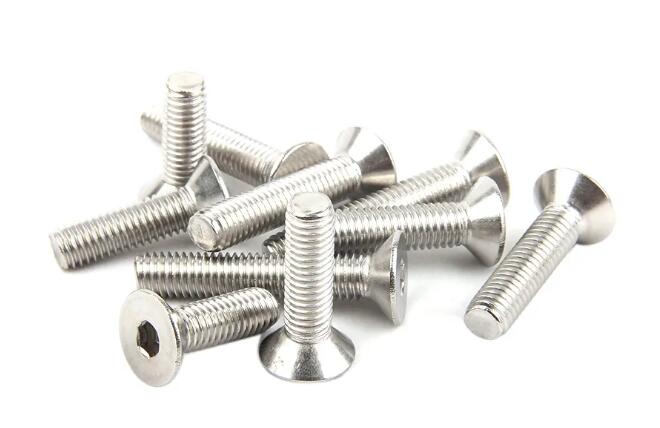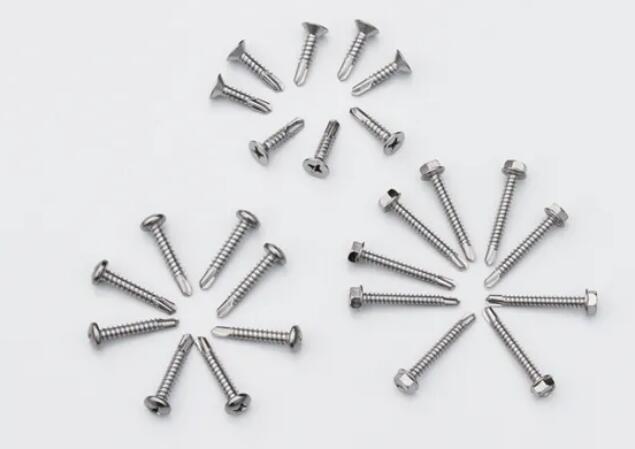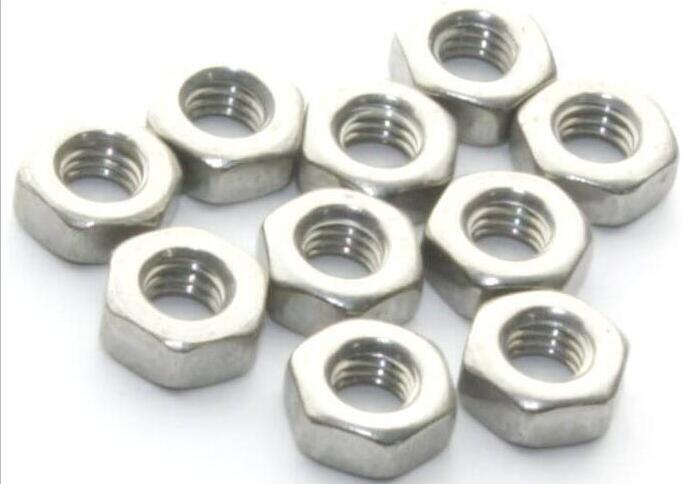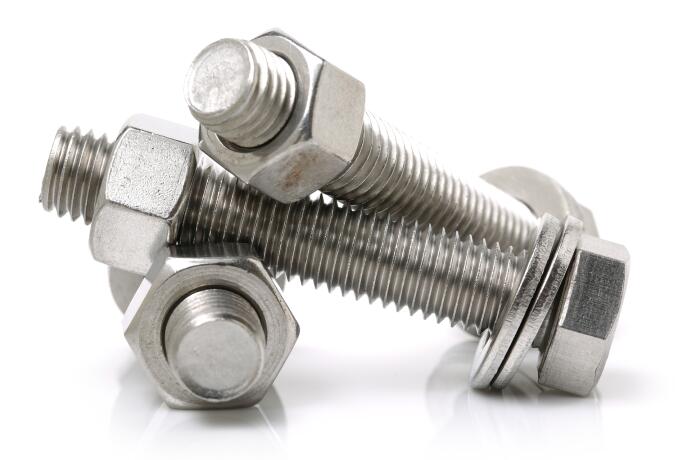The principle of selecting stainless steel wire for manufacturing fasteners
The selection of stainless steel materials is mainly considered from the following 5 aspects.

1. Requirements for fastener materials in terms of mechanical properties, especially strength.
2. The requirements of working conditions on the corrosion resistance of materials.
3. The requirements of the working temperature on the heat resistance (high temperature strength, oxidation resistance) of the material.
4. Requirements for material processing performance in terms of production technology.
5. Other aspects, such as weight, price, and purchasing factors should be considered.
After comprehensive and comprehensive consideration of these five aspects, the grades, varieties, specifications and material standards of the selected fasteners are finally determined.
Austenitic stainless steel
The commonly used grades are 302, 303, 304, and 305, which are the four grades of the so-called “18-8” type austenitic stainless steel. Both corrosion resistance and mechanical properties are similar. The starting point for selection is the production process method of the fastener, which in turn depends on the size and shape of the fastener, as well as on the quantity produced.
Type 302 is used for machine screws and self-tapping screws.
Type 303 In order to improve machinability, Type 303 stainless steel is added with a small amount of sulfur and is used to machine nuts from bar stock.
Type 304 is suitable for hot heading processing of fasteners, such as longer gauge bolts, large diameter bolts, which may be beyond the scope of the cold heading process.

Type 305 is suitable for cold heading processing of fasteners, such as cold formed nuts, hex bolts.
Type 309 and Type 310, their Cr content and Ni content are higher than 18-8 type stainless steel, suitable for fasteners working at high temperature.
Types 316 and 317, both of which contain the alloying element Mo, have higher high temperature strength and corrosion resistance than 18-8 type stainless steel.
Type 321 and Type 347, Type 321 contains a relatively stable alloying element Ti, Type 347 contains Nb, which improves the intergranular corrosion resistance of the material. It is suitable for fasteners that are not annealed after welding or serve at 420-1013°C.
Ferritic stainless steel
Type 430 ordinary chrome steel has better corrosion resistance and heat resistance than type 410, and is magnetic, but it cannot be strengthened by heat treatment. firmware.
Martensitic stainless steel
Types 410 and 416 can be strengthened by heat treatment, with a hardness of 35 to 45HRC, and good machinability. They are used for general-purpose heat-resistant and corrosion-resistant fasteners. Type 416 has a slightly higher sulfur content and is a free-cutting stainless steel.
Type 420, sulfur content ≧ 0.15%, improved mechanical properties, can be strengthened by heat treatment, maximum hardness value of 53 ~ 58HRC, used for fasteners requiring higher strength.
Precipitation hardened stainless steel
17-4PH, PH15-7Mo, they can get higher strength than the usual 18-8 type stainless steel, so they are used for high-strength, corrosion-resistant stainless steel fasteners.
A-286, a non-standard stainless steel, has higher corrosion resistance than commonly used Type 18-8 stainless steels, as well as good mechanical properties at elevated temperatures. Used as high-strength, heat-resistant, corrosion-resistant fasteners, can be used to 650 ~ 700 ℃.
Performance requirements of stainless steel cold heading oil
(1) It has excellent extreme pressure lubrication performance, high temperature resistance, extreme pressure wear resistance, rust resistance and high temperature oxidation resistance and stability. Improve the accuracy and smoothness of the workpiece, prevent mold sintering, and meet the multi-position forming process of standard parts and non-standard parts.
(2) It can reduce oil fume and “drifting fog” to a minimum, and meet the strict requirements of multi-station cold heading machine for manufacturing nuts.
(3) It has good process performance for workpieces with large deformation, such as hollow, high-strength bolts, sleeves, hollow, semi-hollow rivets, etc.
(4) The heat dissipation effect is good, which avoids the high temperature of the workpiece and the mold during the cold forming process, and effectively protects the punch and the mold and prolongs the service life.

Advantages of Stainless Steel Fasteners
Compared with carbon steel, stainless steel fasteners have the characteristics of high temperature resistance and corrosion resistance. Stainless steel is also widely used in our lives. What are the advantages of stainless steel?
The first point, high temperature resistance
High temperature resistance of stainless steel fasteners: It is precisely because the hardness of stainless steel fasteners is strong enough that the fasteners after production and processing have a strong anti-oxidation ability, and they can work normally under high temperature. , so it will not be disturbed too much by high temperature. Stainless steel fasteners work even better if they can be passivated after manufacture and before use.
The second point, the negative rate
Electric negative rate of stainless steel fasteners: The physical properties of stainless steel fasteners have a high electric negative rate, so compared with carbon steel wire, stainless steel fasteners are five times higher than its electric negative rate. After testing, we found that there is an expansion coefficient in the fastener. If the temperature is higher, the expansion coefficient of stainless steel fasteners will gradually increase with the increase of temperature.
The third point, the ability to withstand
The force capacity of stainless steel fasteners: For stainless steel fasteners, the load that its force capacity can carry is medium, even if it is not comparable to high-strength bolts, but the force capacity of stainless steel fasteners can also be satisfied. people’s daily needs.
Fourth point, mechanical properties
Mechanical properties of stainless steel fasteners: In the mechanical properties, most of us know that the mechanical properties of many fasteners are closely related to the stainless steel wire. For example: no rust, high corrosion resistance, etc., these are closely related to the nature of stainless steel itself, with the continuous development of fasteners, these mechanical properties will also become stronger. .

Stainless Steel Magnetic Issues for Fasteners
If stainless steel is used as the main material for fasteners, it is necessary to understand the magnetic properties of stainless steel itself. Stainless steel is generally considered to be non-magnetic, but in fact, austenite series materials may appear magnetic to a certain extent after a certain processing process, but if it is considered that magnetic is the standard for judging the quality of stainless steel fasteners, it is not precise.
When selecting fasteners, whether the stainless steel is magnetic does not indicate its quality. In fact, some chrome-manganese stainless steels are non-magnetic stainless steels. Chromium-manganese stainless steel in stainless steel fasteners cannot replace the use of 300 series stainless steel, especially in highly corrosive working environments.